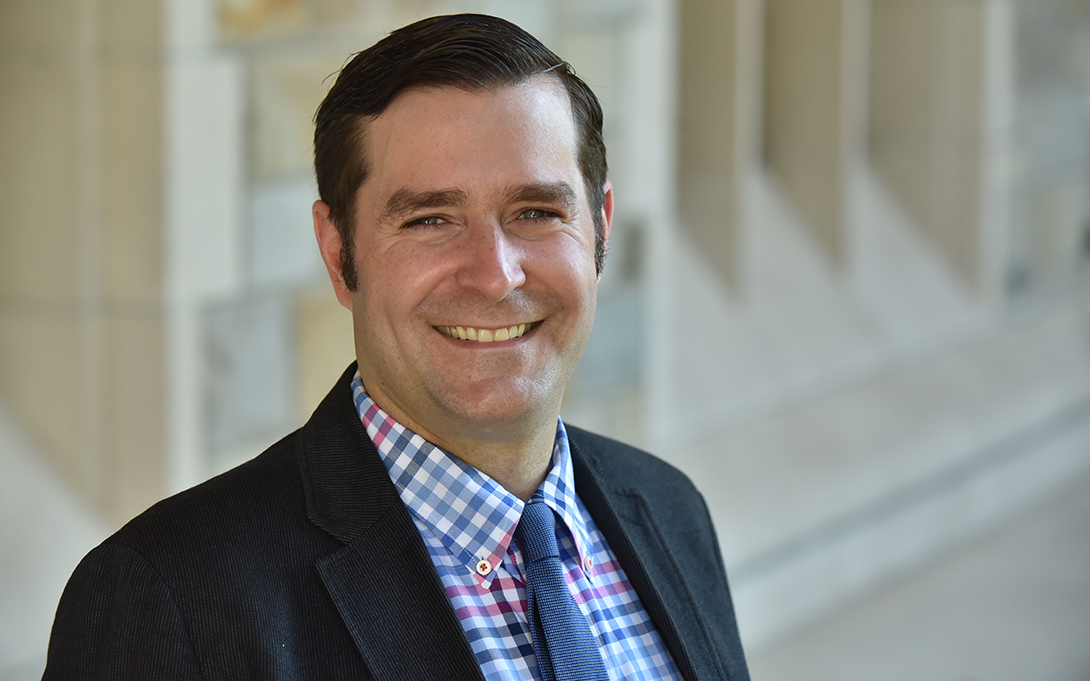
The Ford School is proud of its record of welcoming policymakers-in-residence. This past year, Ford School professor Kevin Stange played a different role – academic-in-residence. He had a one-year assignment working in the U.S. Department of Education (ED) as a senior advisor to Under Secretary James Kvaal, who had himself been a policymaker-in-resident at the Ford School (in 2016). Stange has a long, distinguished track record of research activity in higher education, and the Under Secretary’s office oversees higher education, postsecondary education, and includes the federal student aid office. And he was working directly with the department’s chief economist, Ford School alum Jordan Matsudaira (PhD ’05).
Stange was part of a cohort of 12 economists, representing the first time the department had brought in outside economists on secondment, and included graduate students as well (among whom was Education Policy Initiative’s IES predoctoral fellow Nathan Sotherland).
“Our office did, on some level, whatever analysis that needed to be done. Obviously the priorities of the administration drove our work. And the administration was really prioritizing both student loan forgiveness on a broad scale, but also student loan forgiveness through more specialized programs that were already existing,” Stange describes.
For example, he and the team did analysis to study a new student loan repayment program called SAVE. When the Supreme Court shut down the administration's first attempt at broad student loan forgiveness, new targeted strategies were ready to be deployed.
“There's also a big program to forgive student loans for people that go into public service that was not functional. We did analysis to help the administration fix those issues.”
Another focus of Stange’s research career is around accountability, holding colleges more accountable for the outcomes of their students and making sure people are getting high quality, post secondary education. He was able to apply that knowledge.
“The work is holding colleges more accountable for delivering high quality education at a reasonable price. That took the form of a regulation that we're putting out called ‘Gainful Employment and Financial Transparency.’ It's not been finalized but the proposed regulation was put out publicly and received comments. I was part of a group that helped write it, and I led the quantitative analysis.“
“That is the biggest concrete thing I did..”
When he was working on the new regulation, he was able to look at his own research and that of others, which showed the real value of how academic research can help inform policy.
Finally, Stange feels the academic expertise helped ED sort through “good” and “bad” research. “We can help the administration sort through what we should look at that informs policy and what we should ignore because it's not very credible, because there's a lot of research out there.”
He says that understanding of how relevant research can influence the policymaking process was one of his most important takeaways.
“I learned a lot. The process of how policy gets made and how the stakeholders come together, who are the players and how do they influence each other or influence what gets passed – there are so many details. I will be able to bring that back to the classroom and guide my students through it.”
Insights into the federal government’s data collection will also help him in his future research endeavors.
Going forward, he is planning to work with Sotherland on how the changes to the Federal Pell Grant affect college going and completion.
“We want to understand students' paths through different institutions; in particular, looking at transfer students from community colleges to four year colleges. And when does that work? When doesn't it work? What are the implications for how much debt people take on?,” he says, noting that he can tap into huge data sets.
“I see that policy can be made on the basis of these analyses. So you’ve got to be right.”
More news from the Ford School